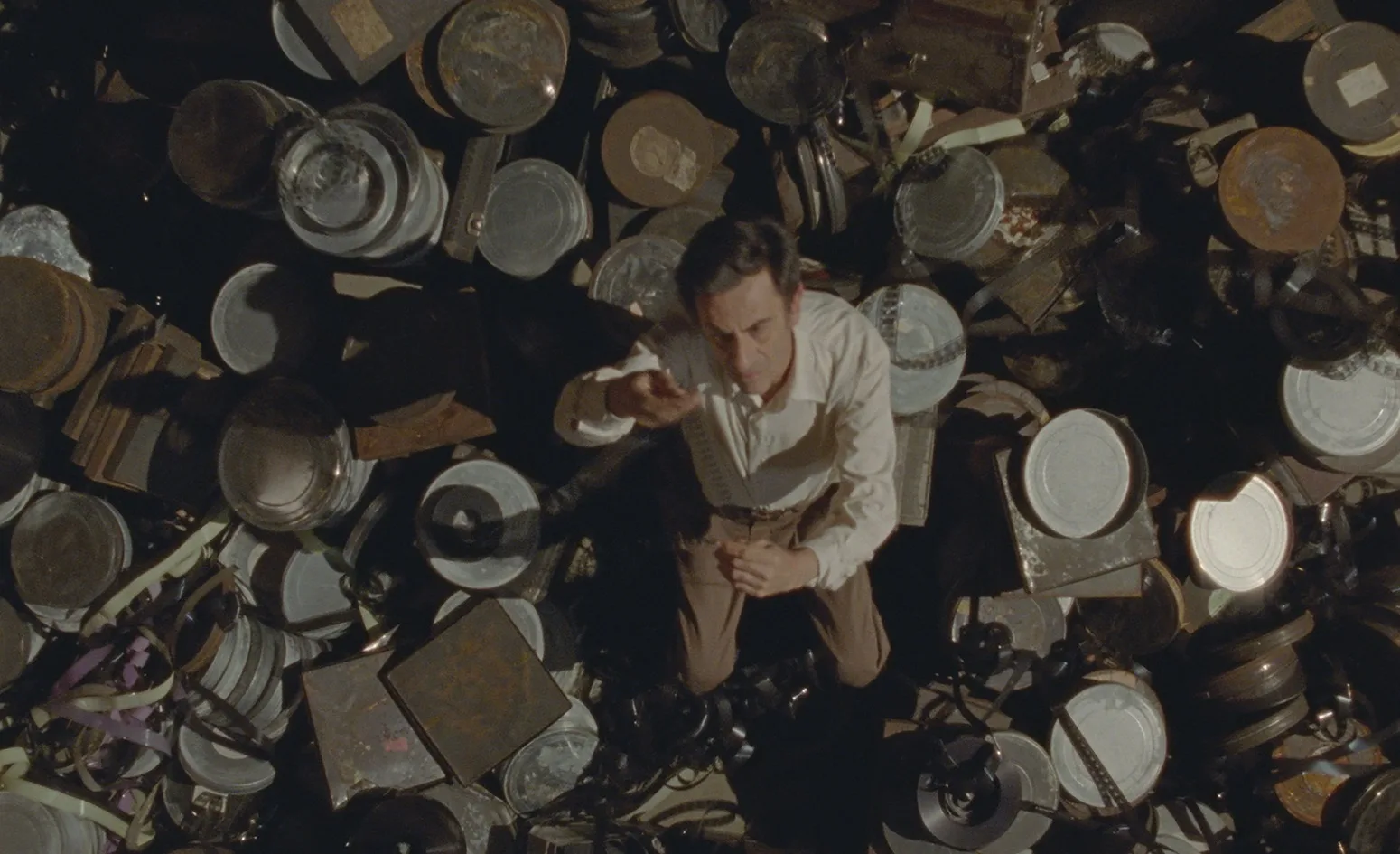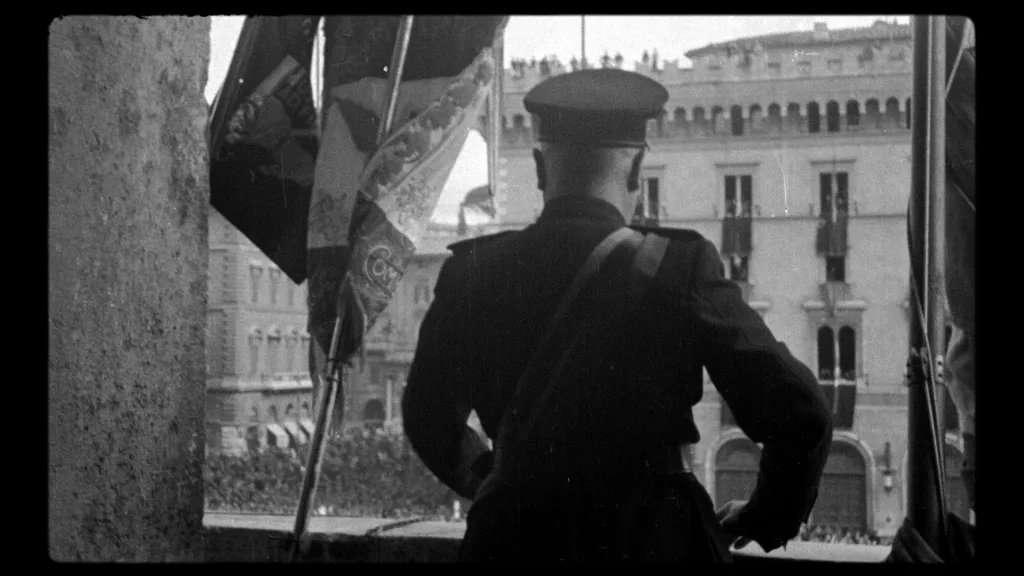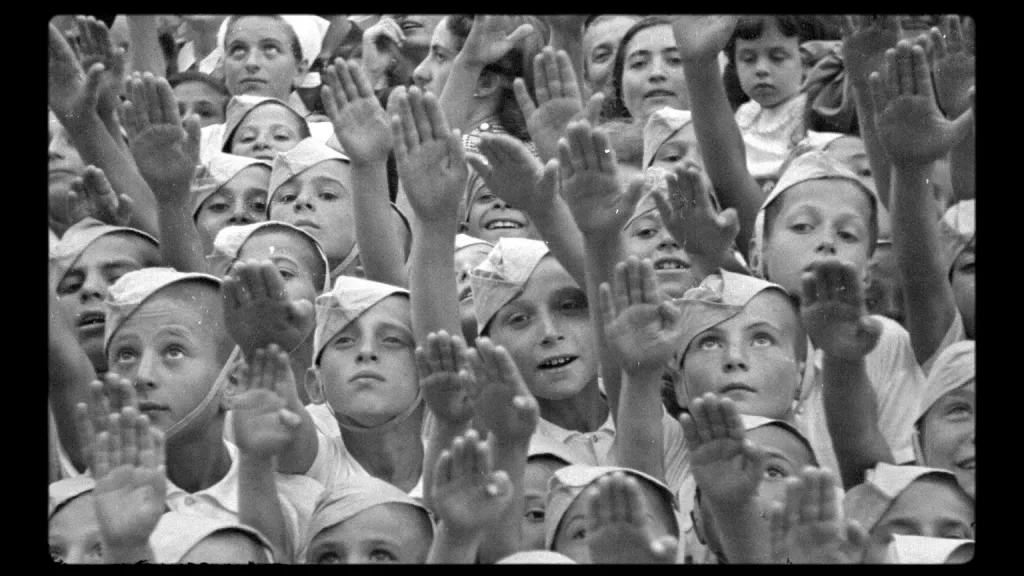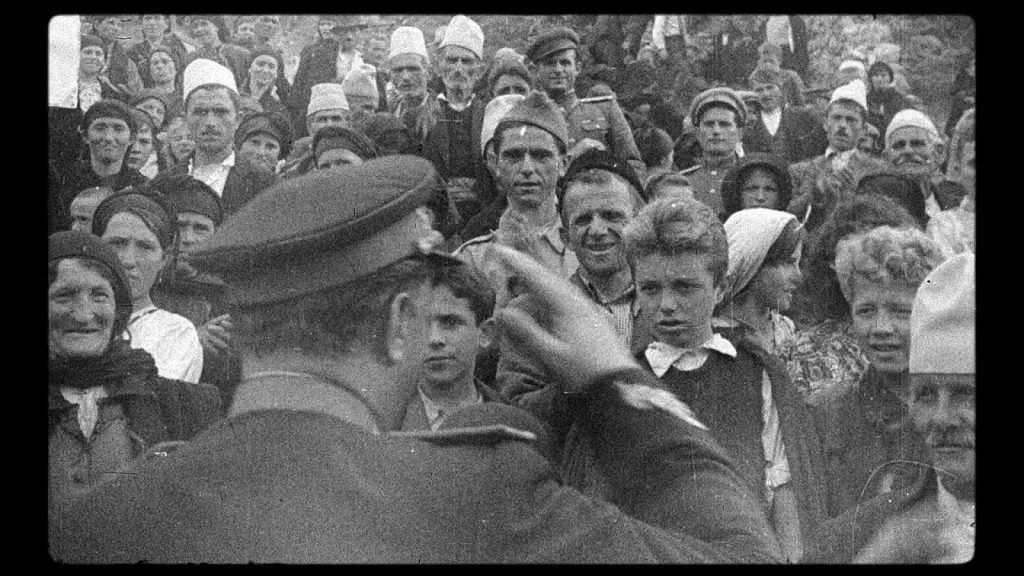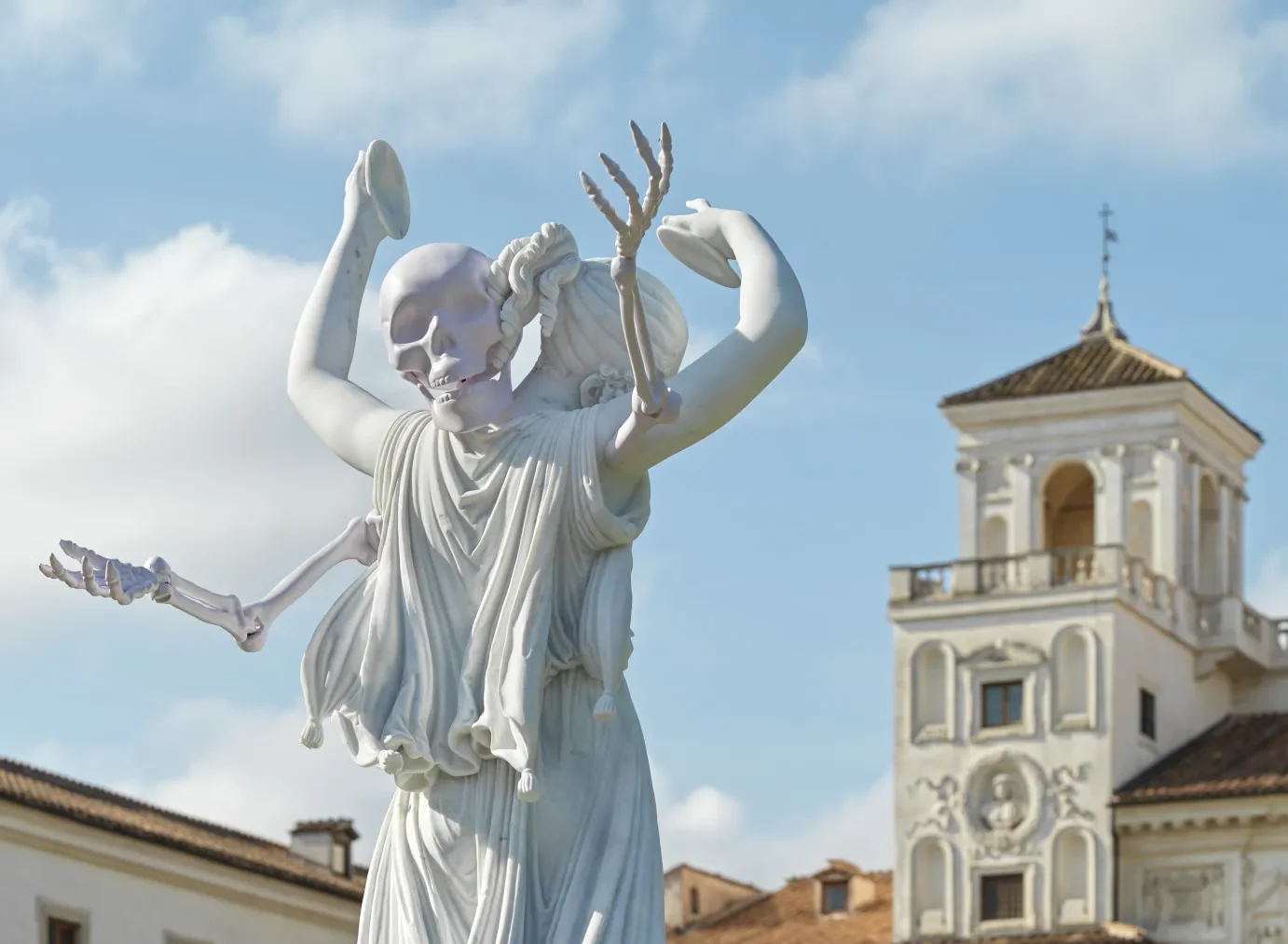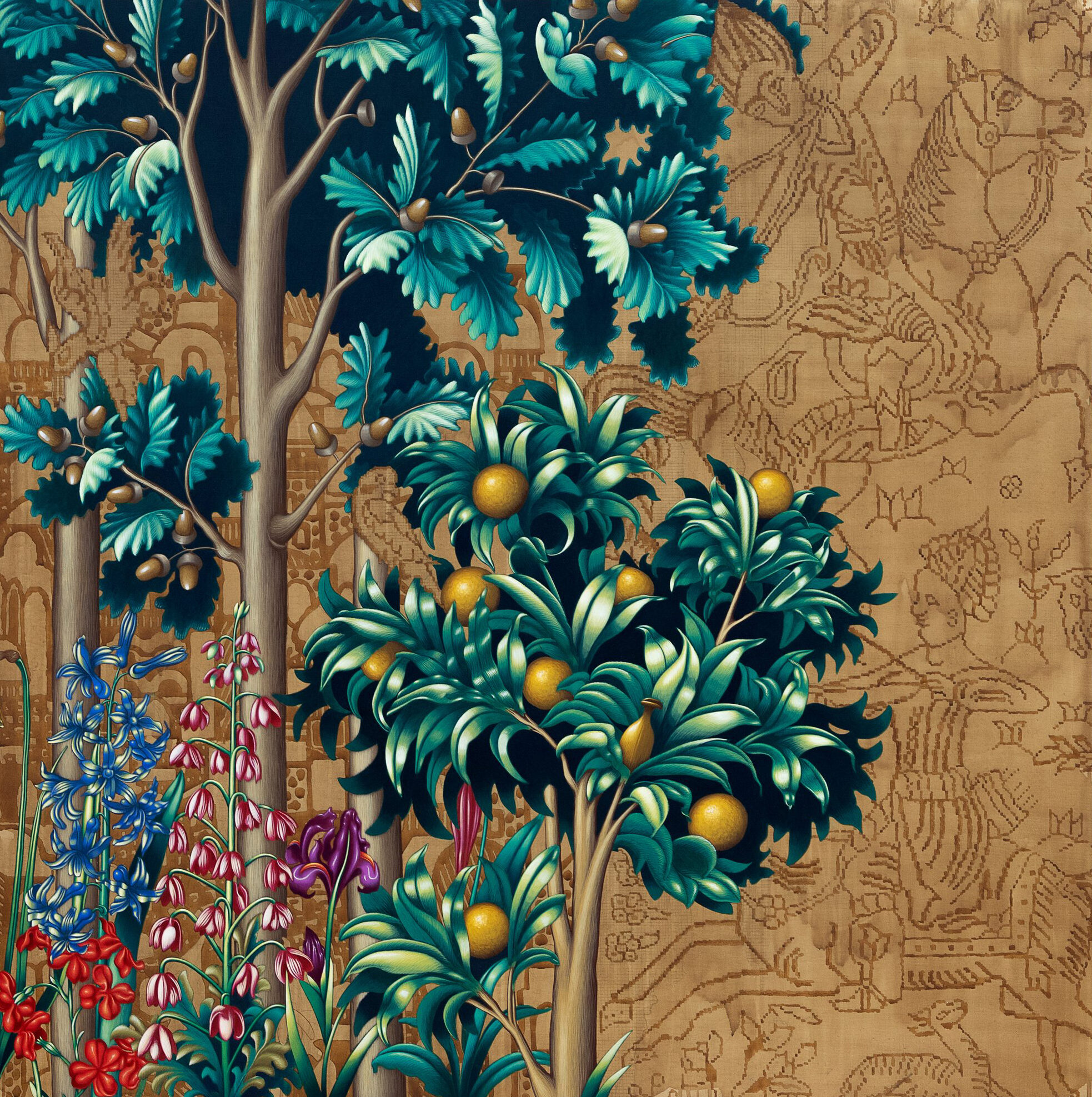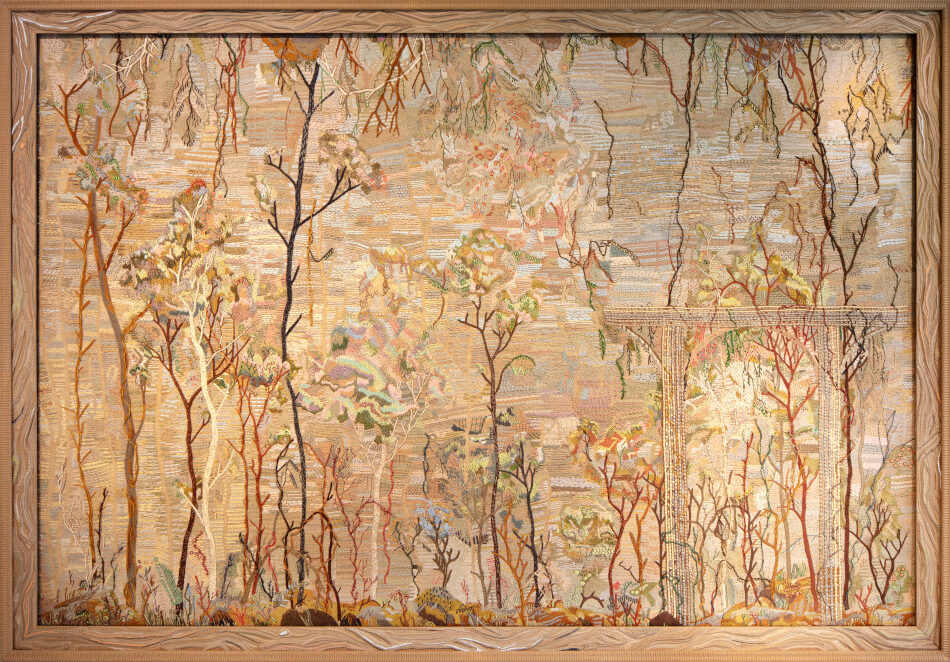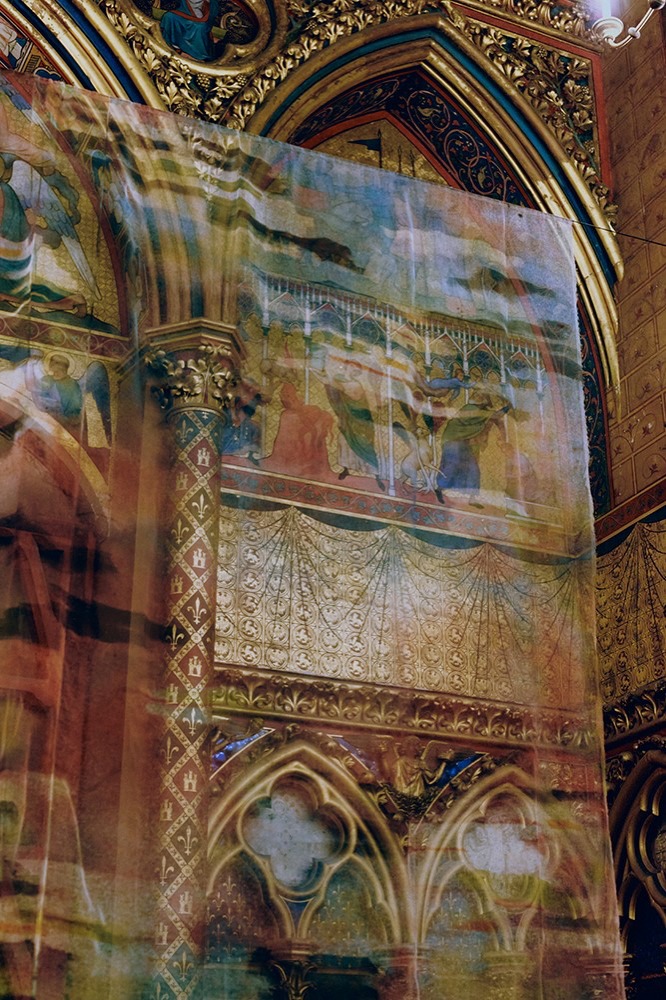Search
Double focus
on the Fascist Occupation of Albania
13.03.2025
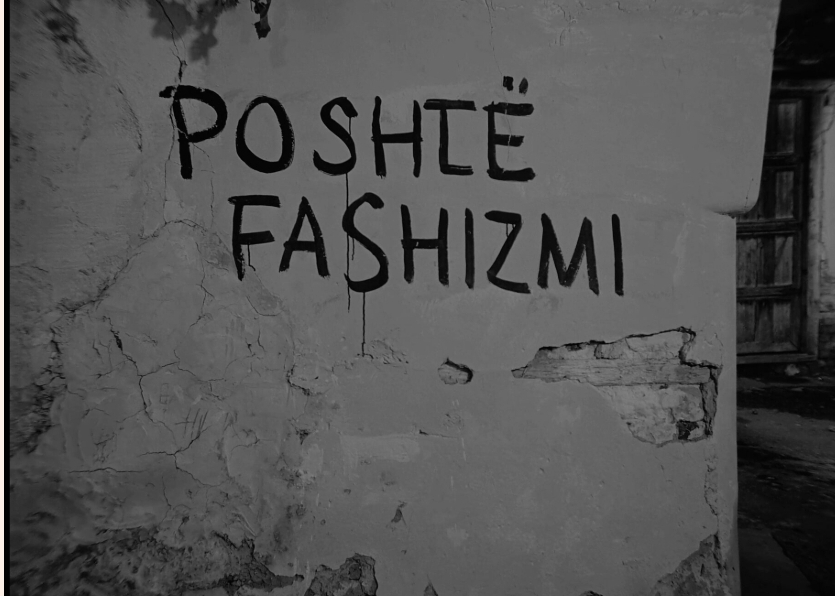
- Artists
- Alberto Basciani
- Carmen Belmonte
- Alessandro Gallicchio
- Marinela Ndria
- Roland Sejko
- Eriona Vyshka
This event aims to question a little-discussed episode in the history of Italian colonial fascism, namely the occupation of Albania between 1939 and 1943. In the space of just a few years, Fascism used this country as an imperial construction site in the heart of Europe, modifying the political, social, urban and cultural structure of a barely born state.
Using a visual approach and an optical metaphor (that of the double focus), the aim is to stimulate new reflection, not only on the memorial power of archives, but also on cinema as a factory of imaginary and politico-ideological narratives. On this occasion, productions preserved at the Arkivi Qendror Shtetëror i Filmit (Central State Archive of Cinema) in Tirana and at the Archivio Luce in Rome will be presented, compared and questioned, seeking to deconstruct the rhetorical strategies developed by Italian fascism and Albanian socialism to tell the story of the period of occupation. From this analysis, which places cinema at the center of the ideological construction of both regimes, will also emerge a discussion of the more contemporary period, and above all of how it is possible, today, to critically rethink this painful chapter of history through the language of film.
This event is conceived and organized by the fellow Alessandro Gallicchio.
Program :
15:00 – 16:30 : Screening
Lulëkuqet mbi mure (1976) by Dhimitër Anagnosti
The film tells the story of four friends – Jaçe, Lelo, Bardhi and Tomi – who live in an institute for orphans in Albania during the Fascist Occupation. Forced by the institute’s director to erase anti-fascist inscriptions on the walls, they cause the perfidious janitor to fall down the stairs and, inspired by one of their teachers, attempt to rebel.
Language: Albanian with Italian subtitles
16:30 – 17:30 : Meeting
Round table moderated by Carmen Belmonte (Università di Padova/Bibliotheca Hertziana – MPI) with:
Alberto Basciani (Università Roma Tre)
Marinela Ndria and Eriona Vyshka (Arkivi Qëndror Shtetëror i Filmit – AQSHF, Tirana)
Roland Sejko (Archivio Luce)
18:30 – 21:00 : Screening
La macchina delle immagini d’Alfredo C. (2021) by Roland Sejko – in the presence of the director
April 1939. Fascist Italy occupies Albania. Thousands of Italian workers, colonists and technicians are transferred to the country.
November 1944, Albania is liberated. The new Communist regime closes the borders and imposes numerous conditions on Italy for the repatriation of its citizens.
In 1945, 27,000 Italians – veterans and civilians – were still being held in Albania. Among them is a film operator for fascist propaganda, Alfredo C., who spent five years filming Albania with his camera. Previously, for almost two decades, he had immortalized the regime’s machinery down to the smallest detail.
From one day to the next, he had to do the same, but for a communist regime.
Locked away in his warehouse, surrounded by thousands of rolls of film, Alfredo C. reviews what he has shot on an old viewing machine. His story.
It’s his film we’re seeing. And perhaps not only hers.
Language: Italian with English subtitles
Biennale di Venezia 2021, Selezione ufficiale
After the screening, the director will take part in a discussion with the audience, moderated by Alessandro Gallicchio (French Academy in Rome – Villa Medici).
Alberto Basciani
Alberto Basciani is Professor of Contemporary History in the Department of Political Science at Roma Tre University, where he heads the Interdisciplinary Research Center on Southeast Europe, Russia and Eurasia (CRIERE). He is also a member of the Committee of the Italian Society for the Study of Contemporary History (SISSCo). His areas of research focus on modernization processes in South-East Europe during the interwar period, Romanian communism and fascist imperialism in the Balkans. His latest monograph is L’impero nei Balcani. La conquista italiana dell’Albania (1939-1943) Rome, Viella, 2022.
Carmen Belmonte
Carmen Belmonte is a tenure-track researcher at the University Padua. She coordinates the research group Decolonizing Italian Visual and Material Culture at the Bibliotheca Hertziana – Max Planck Institute for Art History within the collaborative project SPAZIDENTITÀ, promoted by the École Française de Rome (2022–2026). Before her position in Padua, she was Post-Doctoral Fellow at the Italian Academy for Advanced Studies in America at Columbia University, New York; Adjunct Professor at the University of Florence; Researcher and Lecturer at Roma Tre University.
She was awarded research fellowships from the Scuola Normale Superiore in Pisa; the Bibliotheca Hertziana – MPI, the American Academy in Rome, the Kunsthistorisches Institut in Florenz – Max-Planck-Institut.
Her research focuses on the visual and material culture of Italian colonialism, on the legacies of fascism, and on cultural heritage in post-disaster scenarios. In 2021 she published the book Arte e colonialismo in Italia. Oggetti, immagini, migrazioni (1882-1906), Marsilio. She is the editor of the multi-authored volume A Difficult Heritage: The Afterlives of Fascist-Era Art and Architecture (Silvana Editoriale, 2023).
Alessandro Gallicchio
Alessandro Gallicchio (1986, Italy), 2024-2025 Villa Medici resident, is a lecturer in contemporary art history at Sorbonne University, a member of the André-Chastel Center and a research associate at CETOBaC. With a doctorate in art history from the universities of Florence, Paris-Sorbonne and Bonn (2016), he pursues his research following the methodologies developed by the social and political history of art. He is interested in the influences of nationalism and anti-Semitism in the construction of artistic discourse, and in the relationship between art, architecture and urban space in the Balkans and the Mediterranean.
Marinela Ndria
Marinela Ndria graduated from the Faculty of Figurative Arts, University of Arts, Tirana. She has completed several specialization courses in the field of restoration of works of art at: Institute of Art and Restoration, Palazzo Spinelli, Florence, Italy; UNESCO (United Nations Education, Scientific and Cultural Organization) regional office in Venice; as well as at the professional art school “Frymë dashurie” in Tirana. Her former duties include directing the Central Restoration Laboratory at the General Directorate of Archives in Albania. Previously, she has been a lecturer at the Albanian School of Public Administration, a restorer of works of art in the Regional Directorate of National Culture, Tirana, and in charge of the works of art sector in the Regional Directorate of Cultural Monuments, in Tirana. On March 2022, art restorer Marinela Ndria was appointed to the position of Director of the Albanian National Film Archive.
Roland Sejko
Born and raised in Albania, Roland Sejko graduated from Tirana’s Faculty of History and Philology in 1990. Since 1991, he has lived in Rome, and since 1995 has worked for Istituto Luce, now Cinecittà, where he is currently editorial director of Archivio Storico Luce. He has written and directed several documentaries, mainly distinguished by their reuse of archive cinema. In 2013, he won the David di Donatello Prize for his documentary Anija / La nave. His latest film, La macchina delle immagini di Alfredo C., was presented in official selection at the 78th Venice Mostra Internazionale d’Arte Cinematografica, in the Orizzonti Extra section, and won the Nastro d’Argento for Best Docufilm in 2021. He is the author of films and artistic curator of numerous Istituto Luce and Cinecittà exhibitions. He is also one of the curators of MIAC, the Italian Cinema and Audiovisual Museum at Cinecittà.
Eriona Vyshka
Eriona Vyshka joined the staff of the Albanian Film Archive in 2001. She is in charge of the cataloguing and collections management department. Eriona has edited several catalogues and periodicals published by the Albanian Film Archive and recently has written a book about the archival records in relation with Kinostudio film production process. Eriona has served as the Albanian representative to several Southeast European Cinema meetings, an international cinema network that the Albanian National Film Center joined in 2003. As an experienced archivist, Eriona represents the archives at several regional and European professionals’ meetings and serves as the liaison and project coordinator between the Albanian Film Archive and other collaborators or initiatives AQSHF works with, dedicated to preserving, restoring and promoting Albanian film heritage. Eriona holds an MA in Literature from Tirana University; her research is focused on the adaptation process from novel into film.
Practical information:
Thursday, March 13
3:00-9:00 p.m.
Cinema room Michel Piccoli of Villa Medici
Language: Italian
Free: Book a ticket
